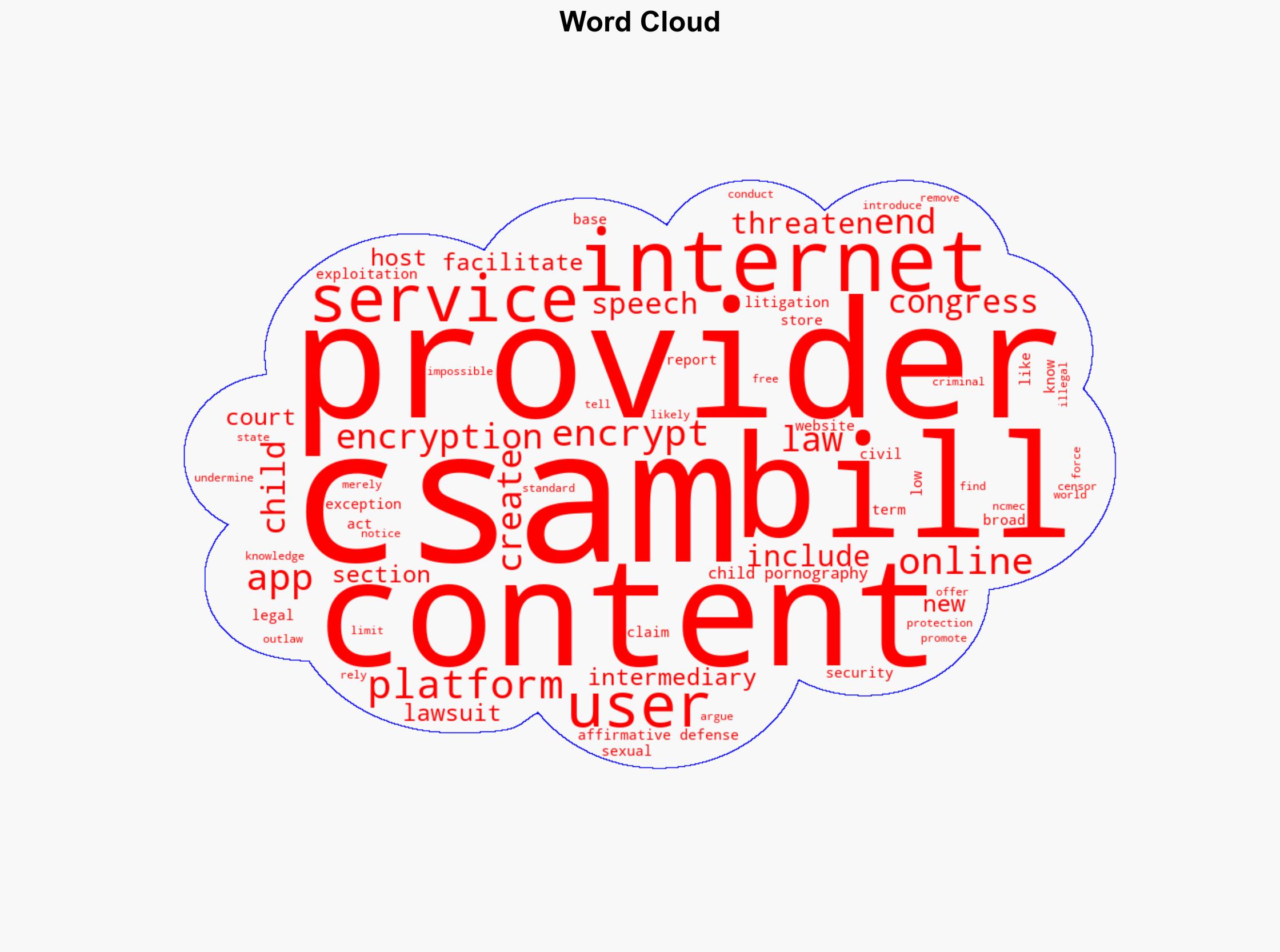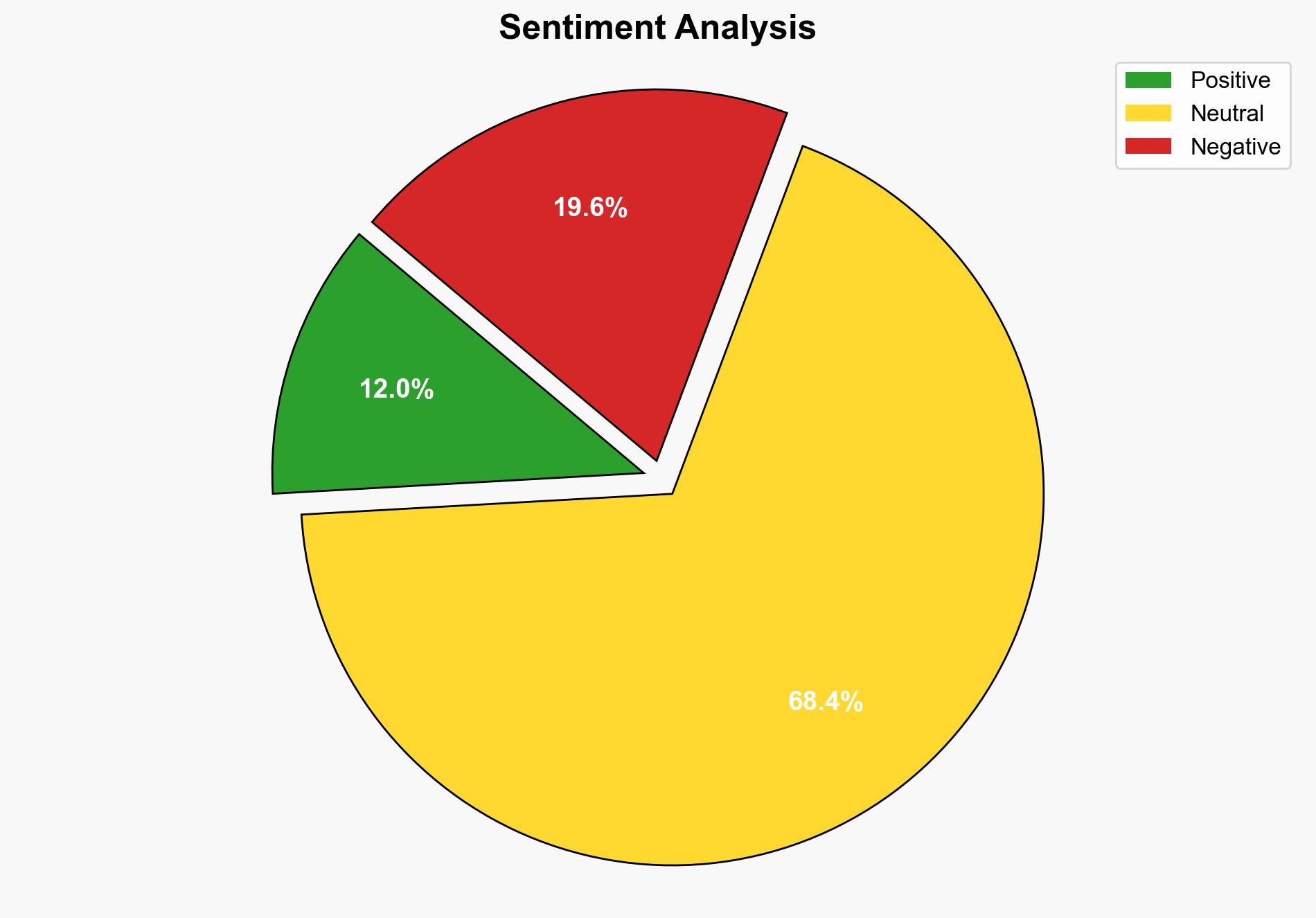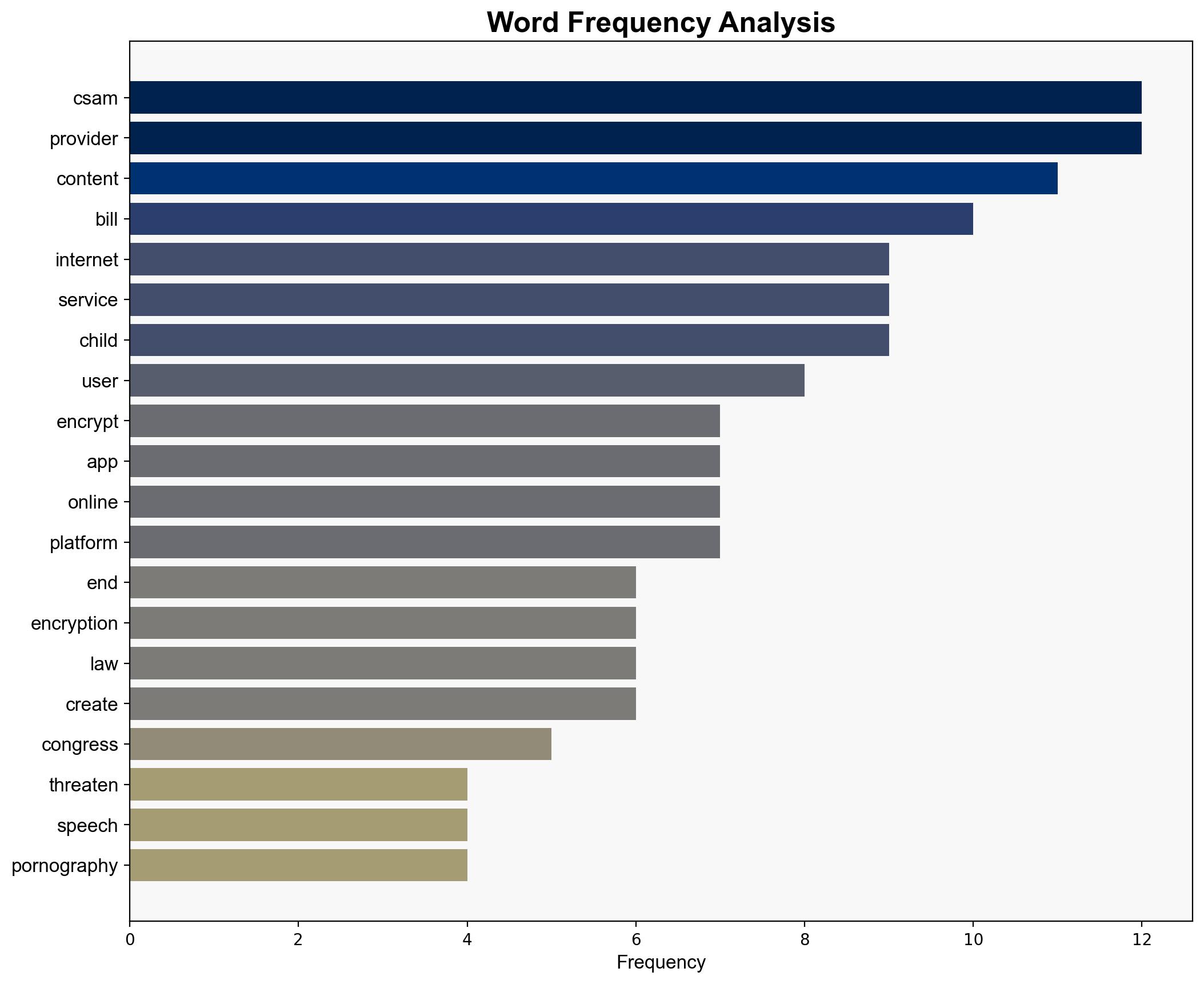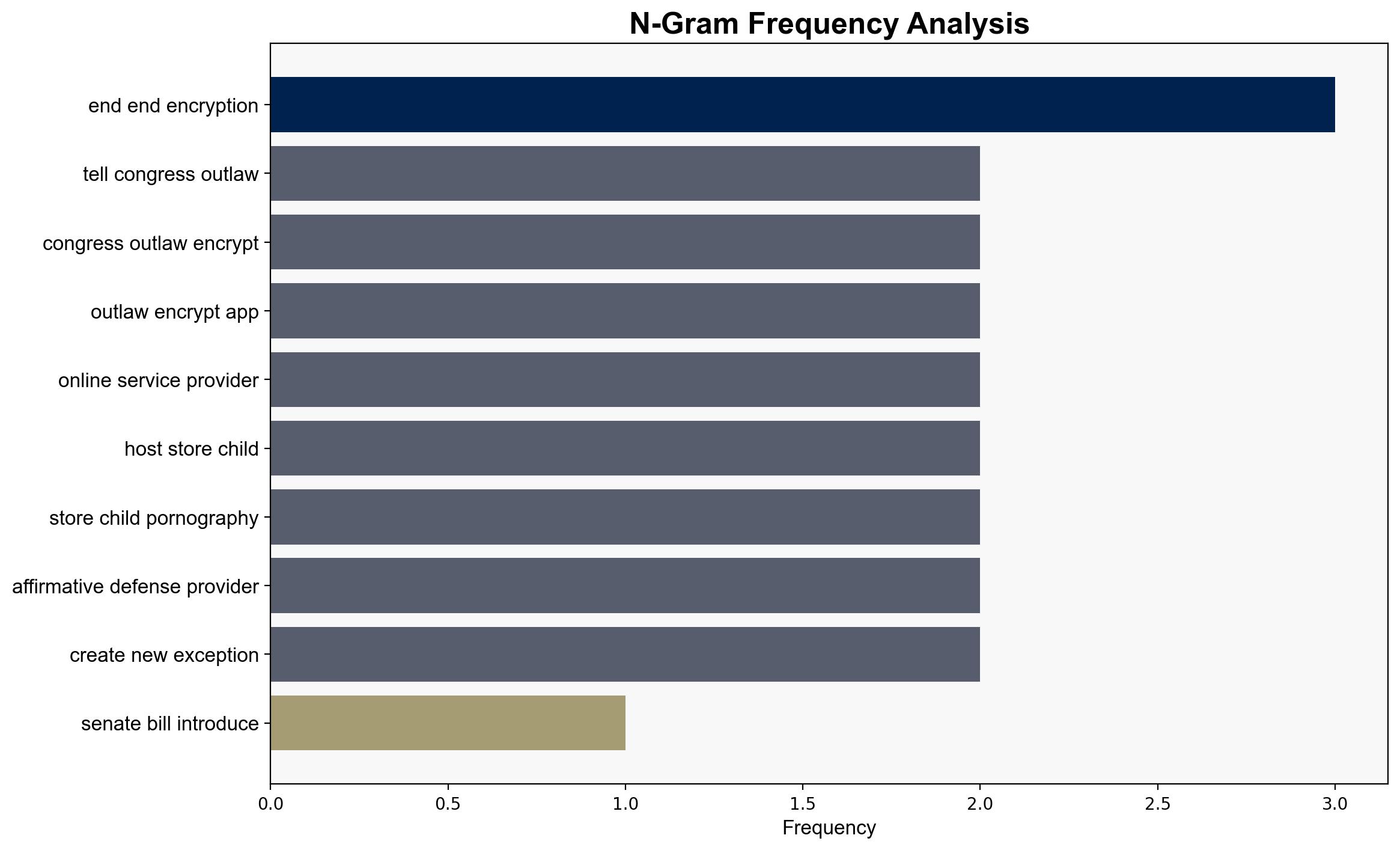Oppose STOP CSAM Protecting Kids Shouldnt Mean Breaking the Tools That Keep Us Safe – EFF
Published on: 2025-06-10
Intelligence Report: Oppose STOP CSAM Protecting Kids Shouldn’t Mean Breaking the Tools That Keep Us Safe – EFF
1. BLUF (Bottom Line Up Front)
The proposed Senate bill, STOP CSAM, aims to limit the spread of child sexual abuse material (CSAM) but poses significant risks to digital security and free speech by potentially undermining end-to-end encryption. The Electronic Frontier Foundation (EFF) urges Congress to reject the bill, highlighting its potential to criminalize secure communication services and impose broad civil liabilities on internet platforms. Key recommendations include maintaining robust encryption standards and exploring alternative measures to combat CSAM without compromising user privacy and security.
2. Detailed Analysis
The following structured analytic techniques have been applied to ensure methodological consistency:
Adversarial Threat Simulation
The bill could inadvertently aid cyber adversaries by weakening encryption, making systems more vulnerable to attacks. This simulation assesses potential exploitation scenarios if encryption standards are compromised.
Indicators Development
Monitoring for legislative changes and technological shifts that could signal increased vulnerabilities in digital communication platforms. Early detection of such indicators is crucial for preemptive action.
Bayesian Scenario Modeling
This technique predicts the pathways through which weakened encryption could lead to increased cyberattacks, quantifying the likelihood of various threat scenarios and their potential impacts.
3. Implications and Strategic Risks
The bill’s broad definitions could lead to significant legal and financial risks for internet service providers, potentially stifling innovation and competition. The erosion of encryption may also escalate cyber threats, impacting national security and economic stability. Cross-domain risks include increased surveillance and reduced trust in digital communications.
4. Recommendations and Outlook
- Advocate for legislative measures that protect children without compromising encryption, such as enhancing existing reporting mechanisms for CSAM.
- Encourage collaboration between technology companies and law enforcement to develop secure, privacy-respecting solutions.
- Scenario-based projections:
- Best Case: The bill is revised to balance child protection with digital security, maintaining strong encryption standards.
- Worst Case: The bill passes without amendments, leading to weakened encryption and increased cyber vulnerabilities.
- Most Likely: Ongoing debate and amendments delay the bill’s passage, with potential compromises on encryption standards.
5. Key Individuals and Entities
No specific individuals are mentioned in the source text. Key entities include the Electronic Frontier Foundation (EFF) and the National Center for Missing & Exploited Children (NCMEC).
6. Thematic Tags
national security threats, cybersecurity, digital privacy, legislative analysis





